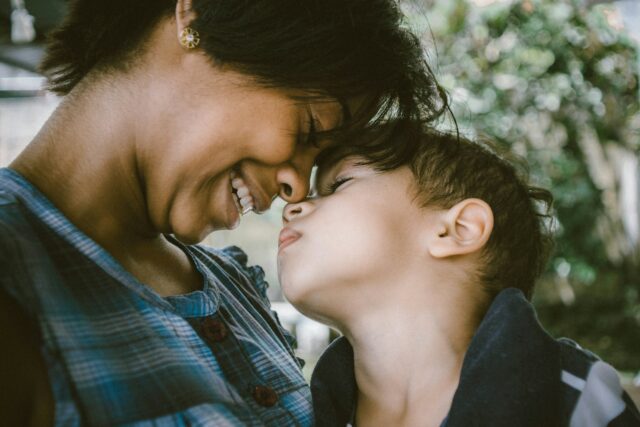Emotional Abuse in Relationships
By: Other | September 30, 2016

Written by Qiuting ‘Iris’ Li, Intern
Many of us have encountered situations, in which we feel that someone, maybe one of our family members or a friend, is constantly devaluing us, making fun of us, degrading our beliefs, shrinking our confidence or restraining our freedom and rights. If emotional abuse is not something you have directly experienced, chances are you may know someone who is suffering. Being in an emotionally abusive relationship can seem like a trap where we are being controlled and dominated by another person. Though it may sound abstract at first, it, nevertheless, has its own definition and some warning signs.
What is emotional abuse?
Emotional abuse is a subtle and insidious non-physical behavior or attitude that controls, manipulates, intimidates, demeans or isolates another person by using humiliation or fear. It can include behaviors such as yelling, name-calling and blaming, and invalidating another’s thoughts and feelings. It is a common misconception that abusive relationships include physical assault. Those who have experienced emotional abuse understand that, even in the absence of bruises and scars, the experience of pain, fear and isolation is still very much present.
For men and women in emotionally abusive relationships, seeking help does not always come easily. One reason why is because emotional abuse is something more subtle and indirect. It can be difficult to describe and name it appropriately. We may try to deny it, possibly because we are afraid of facing the truth or because those around us may not recognize that we actually need help. Worse, we may blame ourselves; think that we must have done something wrong to deserve it.
Why does it happen?
One theory suggests that those who perpetuate emotional abuse have experienced childhood trauma and have feelings of failure, inadequacy, insecurity or deprivation. They never had the opportunity to learn healthy coping mechanisms or experienced healthy relationships. So when they grow up, they may try to avoid these feelings by controlling others. Emotional abusers may not even be aware of their abusive behavioral patterns and the destructive impact that it has on others.
What effects could it have on the victim?
Being emotionally abused by people close to us can have disastrous effects on our physical and mental well-being. It can lead to low self-esteem, anxiety, feelings of worthlessness, difficulties in concentration and Post-Traumatic Stress Disorder. We may self-criticize, self-blame, isolate ourselves from others and gradually lose ourselves in the trap that the abusers set. Worse, emotional abuse is highly likely to accompany or eventually escalate to physical abuse.
What are the signs?
Emotional abuse can occur in any kind of relationship. It is common for people to think that women are usually the victims of abuse. However, men are also emotionally abused in their relationships. Some warning signs of emotional abuse are:
- You are constantly being challenged, criticized or demeaned. Your opinions and needs are being disregarded, your accomplishments and dreams are being trivialized and ridiculed, and your judgement and perception are being questioned.
- You are, or you feel, isolated from your family or friends. You spend less and less time with other people in your life, or you don’t feel free and you need permission to spend time with other people other than the abuser.
- The abuser always blames either you or others for his/her own problems and dissatisfaction. S/he seldom apologizes and takes responsibility of her/his own actions. It is always your fault: you are the one being picked out and accused of, even for things that are actually reasonable and understandable.
- You are being made fun of or humiliated in front of other people. Or the abuser may act normal in public, but in private, s/he names-call you, comments you sarcastically and harshly, or even yells and screams at you.
- The abuser “punishes” you by threatening to leave and abandon you, making subtle and negative remarks, or purposely disengaging and withholding his/her attention and affection, in order to frighten and intimidate you.
How to stop it?
Be true and honest to yourself. The first step is to acknowledge what is happening so that you can access the support that you need.
Listen to your own needs and take care of yourself first. Even though it may be difficult, it is important to refrain from trying to please the abuser. Rather, identify what you need to feel more like yourself again.
Know that it is NOT your fault. You are not the one to be blamed. There is nothing wrong with you. Believe in yourself, your knowledge, your experiences, your strengths and your judgement.
Seek support. Either from professionals, counselors, support groups or from your own social network: your family, your trusted friends, your church fellows, etc. Spending time talking with people who love and support you will help you gain the perspective and strength that you need.
Additional Support Resources:
- National Domestic Violence Hotline – thehotline.org or 1-800-799-SAFE
- International Directory of Domestic Violence Agencies – hotpeachpages.net
- Help Guide – helpguide.org
Recovering from emotional abuse
Healing begins by first recognizing the abuse, and gradually regaining power, confidence and respect for yourself. This can be done with the guidance of a professional therapist, as well as with the support of trusted friends, family or spiritual leaders.
If you suspect that someone you know is being emotionally abused, please help! You might be thinking that it’s none of your business, you’re too sensitive, or the person might not want to talk about it. Nevertheless, express your concerns and let the person know that you are there for them. You may just make a meaningful difference in that person’s life!
Image: judy dean on flickr and reproduced under Creative Commons 2.0



